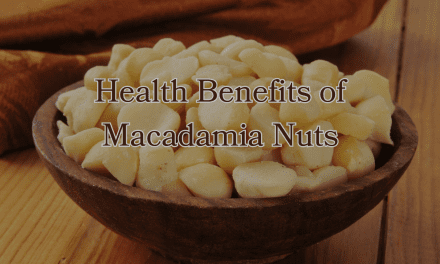Last updated 11 months ago | Originally Published: August 18, 2023
Understanding the Nutritional Power and Health Benefits of Almonds
Almonds boast a rich history, having been a dietary cornerstone across various cultures for centuries. Originating from the Mediterranean region, these versatile nuts have found their way into diverse culinary traditions around the globe.
Their adaptability is evident in various dishes, from savory entrees to health-centric snacks. The global culinary scene has embraced almonds for their unique flavor and texture and their notable health benefits.
As research continues to evolve, almonds are consistently spotlighted as a nutritional gem. Beyond their familiar presence in kitchens, the health implications of incorporating almonds into one’s diet are both profound and promising.
This guide aims to shed light on all the major health benefits of almonds and their significant role in global cuisines! Now, let’s discuss the nutritional profile of almonds.

Unveiling the Benefits of Almonds: A Deep Dive into Their Nutritional Profile
Almonds are more than just a crunchy addition to our meals; they’re a nutritional powerhouse! As we navigate the vast landscape of health foods, almonds consistently stand out, offering a balance of essential nutrients that cater to various health needs.
In this section, we’ll explore the intricate nutritional composition of almonds, focusing on both their macronutrients and micronutrients.
Macronutrients: Protein, Healthy Fats, and Dietary Fiber
When discussing the nutritional composition of almonds, it’s essential to highlight their macronutrient content. These primary nutrients form the core of our daily dietary needs, and almonds offer them in abundance, contributing to various health benefits.
- Protein: A fundamental building block for our bodies, protein plays a pivotal role in muscle repair and growth. Almonds stand out as a commendable source of plant-based protein, making them a favored choice for vegetarians, vegans, and those diversifying their protein intake.
- Healthy Fats: Almonds are rich in healthy fats, especially monounsaturated fats. These fats are crucial for our body’s optimal functioning, aiding nutrient absorption and sustaining energy. Additionally, they can support weight management by promoting feelings of fullness and potentially reducing calorie intake.
- Dietary Fiber: Dietary fiber in almonds serves multiple health purposes. It aids digestion, maintains a healthy gut, and regulates blood sugar. Beyond digestive health, the fiber in almonds plays a role in heart health by aiding in cholesterol reduction.
In essence, almonds are not just a tasty snack but a nutritional powerhouse. Their macronutrient profile underscores their significance in a balanced diet, offering a blend of essential nutrients that cater to holistic health and well-being.
Micronutrients: Vitamins and Minerals
Vitamin E is one of the standout vitamins found in almonds. It acts as a potent antioxidant, protecting our cells from damage by free radicals. Regular consumption of Vitamin E can support skin health, boost the immune system, and even offer protection against certain chronic diseases.
Magnesium, a crucial mineral, is also found in almonds. It supports various bodily functions, including muscle and nerve function, bone health, and energy production. Additionally, magnesium plays a role in regulating blood sugar levels, making almonds a beneficial snack for those monitoring their glucose levels.
All in all, the nutritional profile of almonds is both diverse and impressive, offering a range of benefits that cater to holistic health and well-being.

Top Health Benefits of Almonds
Almonds, while small in size, pack a significant punch when it comes to health benefits. As we further explore the advantages of incorporating almonds into our diet, it becomes evident that their impact spans various aspects of our health. From supporting the heart to enhancing cognitive functions, almonds offer comprehensive benefits that cater to our body’s diverse needs.
Heart Health
Almonds have long been associated with a range of heart-protective properties. One of the primary ways they benefit the heart is by reducing low-density lipoprotein (LDL) or bad cholesterol. Elevated LDL levels are linked to increased heart disease and stroke risk. Regular almond consumption has been shown in various studies to lower these levels, thereby reducing the risk.
Furthermore, almonds are a rich source of antioxidants, including Vitamin E. Antioxidants help protect the body against oxidative stress, which can damage molecules in cells and contribute to inflammation, aging, and diseases like cancer. Specifically, for the heart, these antioxidants can prevent the oxidation of LDL cholesterol, a crucial step in the development of heart disease.
Additionally, the monounsaturated fats in almonds have been associated with heart health benefits. When replacing saturated fats, these fats can reduce heart disease risk factors. The combination of antioxidants, healthy fats, and other almond nutrients makes them a heart-healthy snack that supports cardiovascular function and reduces disease risk.
Weight Management
Almonds, despite being calorie-dense, can be an effective tool in weight management. One reason is the satiety they provide. Almonds are rich in protein and fiber, both of which contribute to feelings of fullness. This can lead to a natural reduction in calorie intake throughout the day.
Moreover, not all calories in almonds are absorbed by the body. Due to the structure of almonds, a portion of the fat remains inaccessible for digestion, meaning that the actual calorie intake from almonds might be about 10-15% less than the number stated on the label.
The dietary fiber in almonds goes beyond just inducing satiety. Fiber aids in smoother digestion, ensuring regular bowel movements and preventing digestive disorders. It also acts as a prebiotic, providing food for beneficial gut bacteria, which play a role in weight management and metabolic health.
Furthermore, studies have shown that regular almond consumption can lead to greater weight loss when compared to complex carbohydrates. This is attributed to the high nutrient density of almonds, which can boost metabolism and increase calorie burn.

Blood Sugar Control
Managing blood sugar levels is crucial for overall health, especially for individuals with diabetes or insulin resistance. Almonds emerge as a supportive food in this context.
One of the reasons is their low glycemic index, meaning they release glucose slowly into the bloodstream, preventing sudden spikes and crashes in blood sugar levels. This slow release is beneficial for diabetics as it ensures sustained energy and reduces the risk of hyperglycemia.
Magnesium, a mineral abundantly found in almonds, plays a multifaceted role in our health. Pertaining to blood sugar, magnesium is involved in the process of insulin secretion and the function of insulin receptors in body tissues.
Research has indicated that a significant percentage of type 2 diabetics have a magnesium deficiency, which can impair insulin function. Almonds can help improve insulin sensitivity and overall blood sugar management by providing a natural source of magnesium.
Boosting Brain Health
Cognitive functions and brain health are paramount for quality of life, and almonds offer nutrients that support this vital organ.
Riboflavin and L-carnitine, found in almonds, are known to boost brain activity by promoting the growth of brain cells and strengthening neural pathways. These nutrients are particularly important for elderly individuals, as they can help prevent age-related cognitive decline.
Emerging research has started to shed light on the potential benefits of almonds in relation to Alzheimer’s disease. While the exact mechanisms are still under investigation, it’s believed that the nutrients in almonds can reduce inflammation in the brain and prevent oxidative stress, both of which are factors in the development of Alzheimer’s.
This suggests that regular almond consumption might enhance brain function and be a preventive measure against degenerative brain diseases.

Skin Health
The quest for radiant and youthful skin often leads individuals to explore various skincare products and dietary changes. Among the foods beneficial for skin health, almonds stand out prominently.
Rich in Vitamin E, almonds provide antioxidant properties that protect skin cells from the damaging effects of free radicals. This antioxidant action is particularly vital in shielding the skin from the harmful impacts of UV radiation, which can lead to premature aging and skin cancer.
Moreover, Vitamin E aids skin hydration, ensuring the skin remains moisturized and supple. This hydration, combined with the protective qualities of Vitamin E, results in skin that looks radiant and is resilient against environmental stressors.
Bone Health
Our body’s structural integrity largely depends on our bones’ health. Ensuring they receive the right nutrients is paramount for long-term health and mobility. Almonds, in this context, offer significant benefits. They are rich in both calcium and phosphorus, minerals that are foundational for bone density and strength.
Calcium is widely recognized for its role in forming and maintaining bones and teeth. However, phosphorus is equally vital, working with calcium to maximize its bone-strengthening benefits. The combination of these minerals in almonds means that their regular consumption can aid in preventing bone conditions like osteoporosis.
Furthermore, the magnesium in almonds also supports bone health by aiding in calcium absorption and activation of Vitamin D in the kidneys, further emphasizing the holistic bone benefits of almonds.

Harnessing the Benefits of Almonds by Integrating them into Your Daily Diet
Recognizing the numerous health benefits of almonds is just the first step. The next, and perhaps the most rewarding, is finding diverse and enjoyable ways to incorporate them into your daily meals. With their versatile nature, almonds can seamlessly blend into various dishes, enhancing both flavor and nutrition. In this section, we’ll explore some of the most popular and effective ways to make almonds a regular part of your diet.
Using Almond Flour in Baking
Almond flour, a staple in many modern kitchens, is derived from blanched and finely ground almonds. Its rise in popularity can be attributed to its gluten-free nature, making it a favorite among those with gluten sensitivities or celiac disease. But its appeal goes beyond just being a gluten-free alternative.
When used in baking, almond flour imparts a moist and tender crumb to baked goods, from muffins to pancakes. Its natural sweetness often means recipes require less added sugar, making treats a tad healthier. Moreover, baked goods made with almond flour are inherently richer in protein, healthy fats, and essential vitamins and minerals, thanks to the nutritional profile of almonds.
However, baking with almond flour can be slightly different than using traditional wheat flour. Due to its lack of gluten, it doesn’t provide the same elasticity, which might require adjustments in recipes. But with a bit of experimentation, one can achieve delightful results, creating baked goods that are not only delicious but also nutritionally superior.
Almond Butter as a Spread or in Smoothies
Almond butter, with its creamy consistency and rich, nutty flavor, is a testament to the versatility of almonds. Made by grinding almonds until they release their natural oils, this butter is a concentrated source of all the nutrients found in whole almonds.
As a spread, almond butter can elevate the simplest of toasts or sandwiches. Its richness pairs well with the tang of berries on toast or the sweetness of bananas in a sandwich. For those seeking a change from traditional peanut butter, almond butter offers a delightful alternative with a more nuanced flavor profile.
In the realm of beverages, almond butter shines in smoothies. When blended with fruits, vegetables, or dairy alternatives, it thickens the smoothie and adds a depth of flavor. Nutritionally, it boosts the protein content of the drink, making it more satiating.
Whether you’re aiming for a post-workout recovery drink or a quick breakfast, adding a spoonful of almond butter can transform your smoothie into a creamy, nutrient-packed delight.

Buying Tips: Making the Most of Your Almond Purchase
Navigating the almond aisle can be a bit overwhelming with the variety of options available. There’s a lot to think about, from raw to roasted, salted to unsalted, and considerations about organic or non-GMO labels. Here’s a guide to help you make informed decisions and ensure you’re getting the best quality almonds for your needs.
Choosing Between Raw, Roasted, Salted, or Unsalted Almonds
Each type of almond offers a unique flavor profile and potential uses:
- Raw Almonds: These are almonds in their natural state without any added flavors or treatments. They’re versatile and can be used in cooking, baking, or simply snacking. Raw almonds are also ideal for those who prefer to soak or sprout their nuts before consumption.
- Roasted Almonds: These almonds have been exposed to heat, enhancing their nutty flavor and giving them a crunchier texture. They can be found in both oil-roasted and dry-roasted varieties. It’s advisable to opt for dry-roasted when possible, as they don’t contain added oils.
- Salted vs. Unsalted: This choice often boils down to personal preference and dietary needs. While salted almonds can be a flavorful snack, those monitoring their sodium intake might prefer the unsalted variety.
The Importance of Looking for Organic or Non-GMO Labels
In today’s health-conscious environment, the source and treatment of food products have become paramount. When shopping for almonds:
- Organic Labels: Organic almonds are grown without synthetic pesticides, herbicides, and fertilizers. Choosing organic ensures you’re getting a product free from these potential residues, aligning with cleaner eating principles.
- Non-GMO Labels: While most almonds are inherently non-GMO, looking for a non-GMO label guarantees that the almonds haven’t been genetically modified and that they’ve been sourced from farms that avoid GMOs.

Storing Almonds Correctly to Maintain Freshness
Like other nuts, almonds contain natural oils that can turn rancid if not stored properly. To maintain their freshness:
- Cool, Dark Place: If you plan to consume the almonds within a few weeks, store them in a cool, dark place in an airtight container.
- Refrigeration: For longer storage, consider refrigerating your almonds. This slows down the oxidation process, preserving their flavor and nutritional value.
- Freezing: If you’ve bought almonds in bulk, freezing them is an excellent option. They can be stored in the freezer for up to two years without losing their quality.
Our Final Thoughts on the Health Benefits of Almonds
In our exploration of almonds, it’s evident that these humble nuts are powerhouses of nutrition. From bolstering heart health, aiding in weight management, and supporting blood sugar control to enhancing cognitive functions and promoting radiant skin, the health benefits of almonds are multifaceted and profound.
But what truly sets almonds apart is their versatility. Whether you’re snacking on them raw, adding a crunch to your salads, enriching your baked goods with almond flour, or blending almond butter into your morning smoothie, there’s no shortage of ways to enjoy them.
Their adaptability ensures that reaping their health benefits doesn’t require a drastic change in eating habits. Instead, it’s about making simple, delicious additions to your daily meals.
In essence, almonds are not just a treat for the taste buds but a gift for our well-being. As we’ve seen, integrating them into our diets is both an enjoyable culinary experience and a step towards a healthier lifestyle.

Enjoy the Health Benefits of Almonds by Taking Action
Why just read about the wonders of almonds when you can experience them firsthand? Dive into our premium selection at Candy Retailer and discover the finest almonds and an array of other nutritious nuts.
Whether you’re seeking a specific brand or a particular packaging preference, we’ve got you covered. We cater to all your nutty needs, from bags and pouches to cans and cases, or even if you’re looking to buy by the pound. Elevate your health and tantalize your taste buds with nature’s finest offerings.
Click Here to View All Our Almonds







Recent Comments